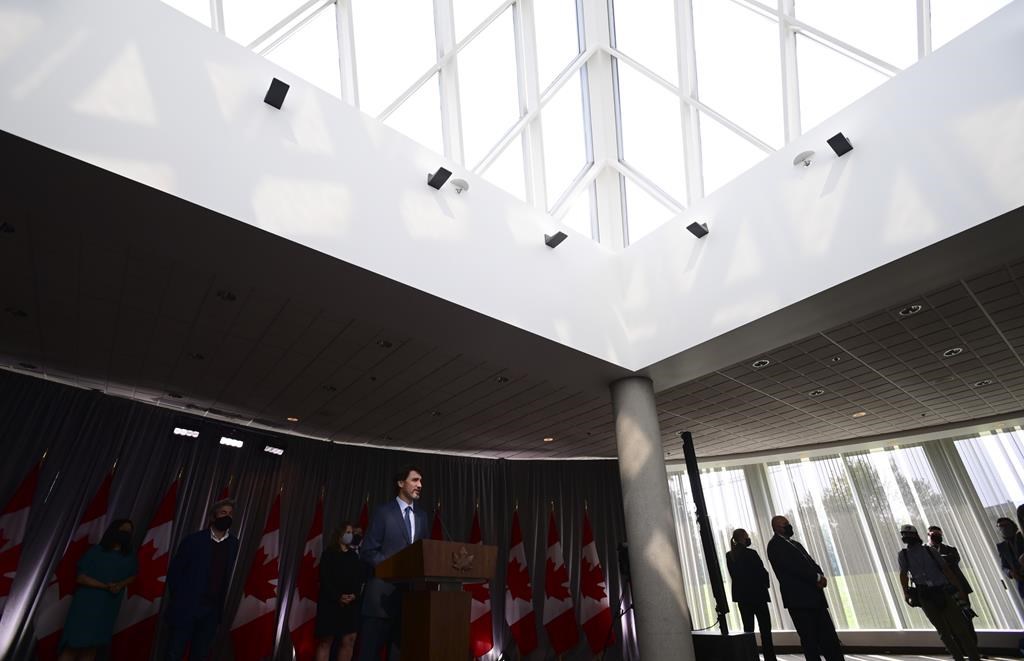OTTAWA – The Canadian Civil Liberties Association (CCLA) is calling on the Canadian Liberal Party to stop using facial recognition technology in nomination votes for the upcoming federal election.
Liberals use this technology to confirm the identity of eligible voting members at nomination meetings. This identification system began to be implemented across the country a few days ago.
Nomination meetings are usually held in person, but due to the COVID-19 pandemic, the LPC is holding virtual meetings this summer.
In the CCLA’s view, fingerprinting thousands of people in this way poses privacy risks as well as significant reliability risks. This is what the organization wanted to inform Justin Trudeau’s party in a letter sent on Wednesday.
The association also fears that this use by the ruling party will send a message that this type of technology is ready for implementation.
In its letter, a copy of which was obtained by The Canadian Press, the CCLA said it understands the party’s obligation to verify the identity of voters in these individual circumstances.
“The choice of a technological tool to facilitate the online voting process in times of an epidemic may have been made with the aim of facilitating the voting of members, thus achieving many commendable goals,” we can read in the signed letter. by Michael Bryant Society’s General Manager.
“But a face print is not the right tool, right now, in Canada,” he says.
The Liberals joined the American company Jumio, which works with companies in 200 countries. Among her clients in Canada, she named 7-Eleven and PC Financial. In early May, the company said it checked the identities of 1 million people daily as the pandemic increased the need for remote identification.
What the technology in question does is to compare a user’s selfie to an official photo linked to a valid government document.
Jumio representatives have not yet responded to our requests for comment late Wednesday.
Organizations need to take important precautions before implementing such technology, says Michael McEvoy, British Columbia’s privacy commissioner. He adds that using such a tool would probably be too ambitious for the real need of the cause.
Users can’t easily change their face prints and they can also change a password or replace a credit card if hackers steal their biometrics, McEvoy points out.
He adds that these techniques have proven unable to adequately identify people who suffer from racism.
“Elected officials, both federal and local, must think about these issues, because technology is developing rapidly,” Commissioner McEvoy continued. We have to address these problems and ask ourselves whether the current laws are sufficient and sufficient.”
LPC spokesperson Braeden Caley explained that voting members have the choice between an automated verification process, similar to that used by financial institutions, or identifying themselves manually through a video meeting with a party official as in an in-person meeting.
Braeden Caley asserts that the party consulted the manual designed by the Federal Privacy Commissioner before opting for facial recognition technology. It also insists that all data is erased once the member is duly identified.
The Liberal Party has already announced the nomination of 169 candidates. Kelly confirmed that multiple nomination meetings are also scheduled over the next few days and weeks.
Due to the frequency of meetings and changing hours across the country, PLC preferred Jumio services as the company offered support 24 hours a day.
While there are privacy rules governing the practices of companies and police forces, federal political parties are not subject to any such rule, with the exception of the territory of British Columbia.
For Michael McEvoy, this is a major loophole that the federal government must quickly close.
Federal political parties must be treated like any other organization. They should be obligated to ensure that information collected, used and shared complies with the law,” repeating that this is not the case at this time.

“Subtly charming problem solver. Extreme tv enthusiast. Web scholar. Evil beer expert. Music nerd. Food junkie.”

